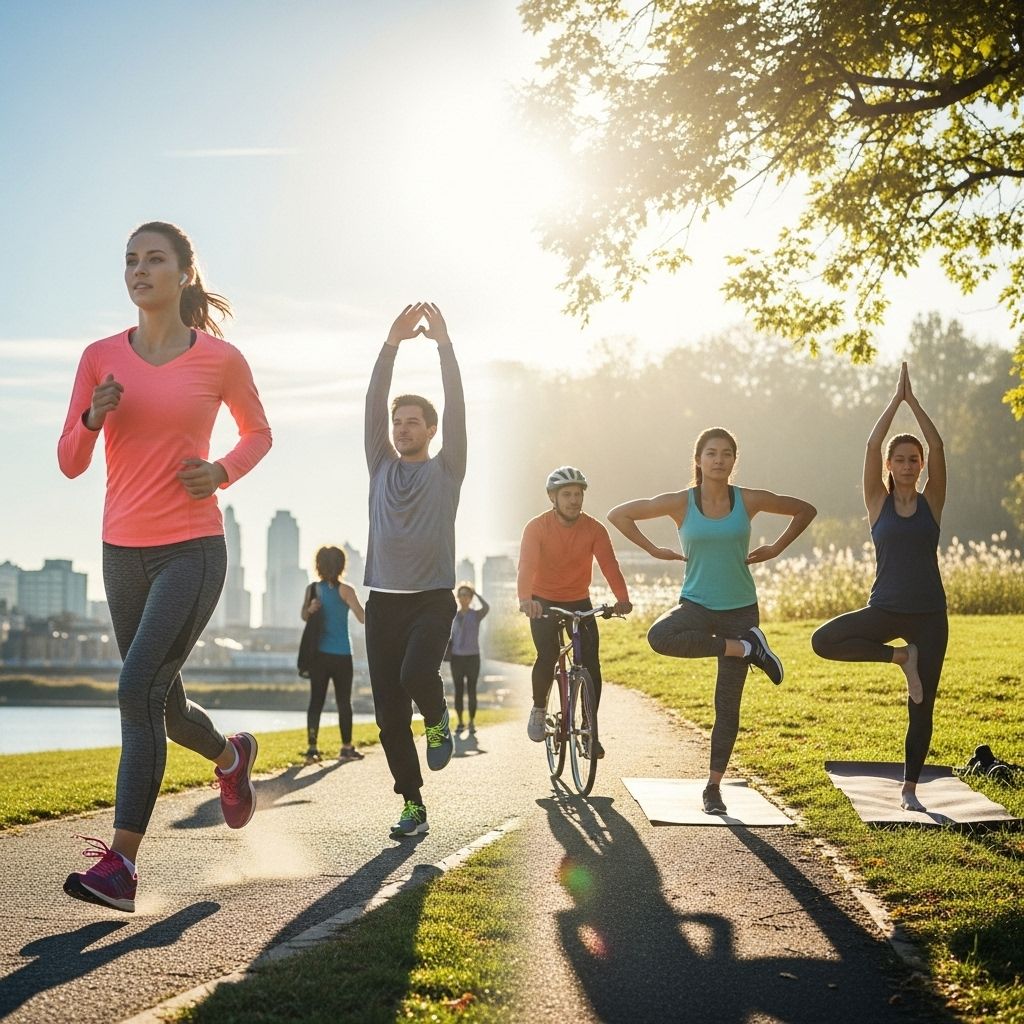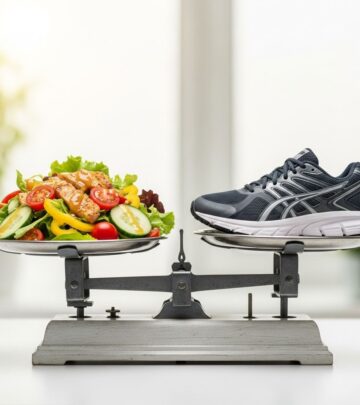The Benefits of Exercising 30 Minutes Every Day
Discover how just 30 minutes of daily exercise transforms your health, mood, sleep, and overall well-being for a happier life.

Daily exercise has long been recognized as a cornerstone of a healthy lifestyle. Recent research and health recommendations underline that even modest increments—just 30 minutes of physical activity each day—bring a wide array of health, wellness, and lifestyle benefits. From boosting cardiovascular function to improving mood, sleep, and social connections, the effects of regular physical activity are both transformative and sustainable.
Why 30 Minutes Matters: The Science Behind Daily Activity
Experts agree that 30 minutes of moderate to vigorous exercise per day is both achievable and sufficient for most adults to unlock broad health rewards. This duration aligns with physical activity guidelines from agencies such as the CDC and Mayo Clinic, which emphasize consistency rather than intensity or complexity. Whether your activity includes brisk walking, cycling, swimming, or group fitness, regular movement keeps the body and mind operating optimally.
What Counts as Exercise?
- Brisk walking
- Jogging or running
- Swimming
- Cycling
- Dance classes
- Strength training (bodyweight or equipment-based)
- Pilates or yoga
- Recreational sports
Any activity that raises the heart rate and engages muscle groups for at least 30 minutes qualifies.
Key Health Benefits of Daily 30-Minute Exercise
1. Controls Weight and Boosts Metabolism
Maintaining a healthy weight is one of the best ways to prevent chronic illness. Regular movement increases caloric expenditure, helps manage body fat, and supports metabolic health. According to Mayo Clinic, “Exercise can help prevent excess weight gain or help you keep off lost weight. When you take part in physical activity, you burn calories”. Even non-exercise activities like taking the stairs or active chores contribute to daily energy expenditure.
| Activity | Est. Calories Burned (30 min, adult, moderate pace) |
|---|---|
| Brisk Walking | 120-170 |
| Cycling | 200-300 |
| Swimming | 180-250 |
| Jogging | 230-340 |
2. Reduces Risk of Chronic Diseases
Daily exercise plays a significant role in both disease prevention and symptom management. Regular physical activity improves cholesterol profiles, regulates blood pressure, and enhances blood circulation, lowering the risk for cardiovascular disease. Exercise also helps prevent or manage:
- Type 2 diabetes
- Stroke
- Metabolic syndrome
- Various cancers
- Arthritis and musculoskeletal pain
- Falls, especially in older adults
Dynamic movement supports cognitive function as well, reducing the risk of age-related mental decline and improving overall brain health.
3. Elevates Mood and Reduces Stress
Exercise has potent effects on mental wellness. Even a single session of aerobic exercise stimulates the release of endorphins, dopamine, and serotonin, neurotransmitters responsible for mood regulation. Regular activity has been shown to:
- Reduce symptoms of depression and anxiety
- Enhance feelings of relaxation and happiness
- Increase self-esteem and body confidence
- Decrease irritability and stress levels
Studies repeatedly demonstrate that active adults have lower rates of depression and stress-related disorders.
4. Boosts Energy and Physical Stamina
Feeling tired? Exercise may be the remedy. Engaging in daily movement improves muscle strength and cardiovascular efficiency. This results in:
- Less fatigue with routine tasks
- Improved productivity at work and home
- Greater ability to perform physically demanding activities
Regular activity also sends oxygen and nutrients to tissues throughout the body, further supporting optimal function and endurance.
5. Improves Sleep Quality and Duration
According to clinical studies, physical activity helps people fall asleep faster, increases sleep depth, and extends duration, especially when performed earlier in the day. Exercise reduces sleep disturbances, making it easier to wake up feeling refreshed. Experts recommend avoiding high-intensity exercise close to bedtime, as it can make it harder to wind down.
6. Enhances Sexual Health and Intimacy
Fewer people connect exercise with improvements in sex life, but the rewards are substantial. Regular activity increases energy levels, body confidence, and physical arousal, strengthening intimacy for couples. Men who exercise are less likely to experience erectile dysfunction; women report improved sexual satisfaction and arousal when physically active.
7. Encourages Social Connections and Fun
Many forms of exercise—such as group sports, dance classes, or walking clubs—promote a sense of belonging and social engagement. Active participation in shared physical activities helps build relationships, boosts motivation, and adds joy to life.
- Group workouts build camaraderie
- Outdoor activities offer healthy opportunities to disconnect from screens
- Physical activity is a proven way to reduce loneliness and foster a sense of community
How to Build a Sustainable Daily Exercise Habit
Consistency is the key to tapping into the numerous benefits of exercise. You don’t need a gym membership or expensive equipment. Focus on making movement a regular part of your day. Here’s how:
- Set realistic goals: Start with activities you enjoy and progress gradually.
- Prioritize variety: Mix up your routine with different activities to prevent boredom.
- Buddy up: Exercise with friends or family to increase accountability and motivation.
- Schedule it: Treat your daily workout like an important appointment.
- Track progress: Use a simple journal or app to record your workouts and stay motivated.
Common Myths about Exercise—Debunked
- Myth: You must work out intensely to gain benefits.
Fact: Moderate activity, such as brisk walking, yields substantial health rewards when done regularly. - Myth: Only gym workouts count.
Fact: Everyday movements, such as gardening, cleaning, or dancing, also contribute to improved health. - Myth: It’s too late to start.
Fact: People of all ages can benefit from daily movement, even starting later in life.
30-Minute Exercise Ideas for Every Lifestyle
- Take a brisk walk around your neighborhood or local park
- Join a beginner-friendly dance or Zumba class
- Follow along with an online yoga or pilates workout
- Bike to run errands or travel short distances
- Engage in bodyweight exercises like squats, lunges, and push-ups
- Play with your children or pets outdoors
- Try hiking or gentle trail running in nature
The key is to make physical movement enjoyable and accessible.
Frequently Asked Questions (FAQs)
Q: What are the most important benefits of exercising for 30 minutes daily?
A: Improved physical health, better mood, stress reduction, more energy, better sleep, and enhanced social connections are among the top rewards.
Q: Is 30 minutes of daily exercise enough for weight loss?
A: For most adults, 30 minutes of moderate activity supports healthy weight maintenance and can aid in gradual, sustainable weight loss when combined with a nutritious diet.
Q: Can I split my exercise into smaller segments throughout the day?
A: Yes. Multiple shorter sessions (e.g., three 10-minute walks) offer similar health benefits as one continuous 30-minute workout.
Q: What if I have a chronic condition or am older?
A: Always consult with your healthcare provider, but in most cases, gentle daily movement is safe and offers major benefits at any age or health status.
Q: How soon will I notice the benefits of regular exercise?
A: Many people report improved mood and energy within a few days. Physical changes like weight loss or increased strength may take several weeks of consistent activity.
Final Tips for Success
- Choose activities you enjoy
- Wear comfortable clothing and supportive footwear
- Stay hydrated and fuel your body with balanced meals
- Listen to your body—rest as needed
- Celebrate your consistency, not just your achievements
Making exercise a daily habit is a powerful investment in a happier, healthier future. The evidence is clear: Just 30 minutes each day unlocks benefits for your body, mind, relationships, and overall quality of life.
Read full bio of Sneha Tete












